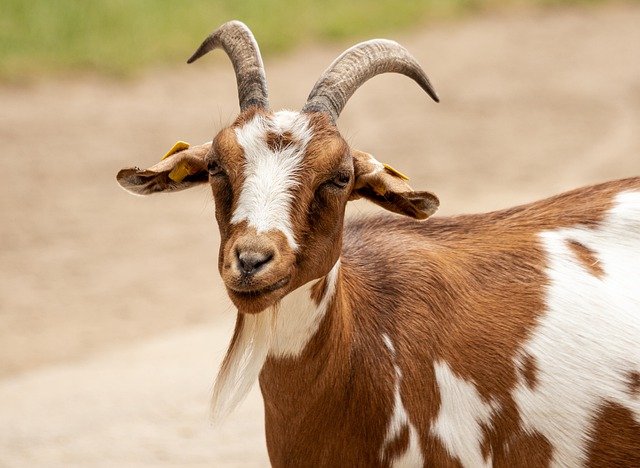By Tim Lambert
BURY, BOROUGH
This is usually a corruption of burh, which meant a fort of fortified place. Aylesbury was Aegel’s burh or burgh. Boarhunt was burh funta the spring by the fort. Narborough in Leicestershire was nor (north) burh.
BY
By was the Danish word for village. Derby was Deor By the deer village. Enderby in Leicestershire was Eindrithi’s by.
CASTER, CESTER AND CHESTER
These are derived from the Saxon word ceaster, which meant a Roman fort or town. Lancaster was Lune ceaster. Chichester was Cissa’s ceaster.
CLOPP
Clopp meant a short hill. Clapham in London was clopp ham the village by the short hill.
COOMB OR COMBE
This is usually derived from the word ‘cumb’, which meant valley. Compton a common village name was cumb tun or valley farm.
COTT OR COTE
Place names ending in cott or cote are usually derived from the Saxon word for house ‘cott’.
DEAN OR DENE
This is usually a corruption of denu, which meant a little valley.
DEN
At the end of the place name is usually derived from denn, which meant pasture, usually for pigs.
DON
Don is usually derived from the word ‘dun’, which meant hill. (The South Downs were the South Duns). Hoddesdon in Hertfordshire was Hodda’s hill.
ESSEX
Essex was the land of the East Saxons.
EY OR EA
These are usually derived from the Saxon word ‘eg’, which meant either island or promontory. (It could also mean an area of dry land surrounded by marshy land). Swansea was Swain’s eg or Swain’s promontory.
FARN
Farn is usually a corruption of fern as in Farnham
FIELD
Field is usually a corruption of ‘feld’ which meant open land (without trees). Sheffield was Sheaf feld.
FLEET
Fleet was an old word for a stream.
FRITH
A frith was a forest where the right to hunt animals was reserved for the king or a noble.
HAM
Ham meant village or estate. Rotherham was the village by the Rother.
HAMPTON
In the Anglo-Saxon language the word hamm meant water meadow. Hamm tun meant hamlet by the water meadow. Southampton was hamm tun then Hamtun. It gave its name to Hampshire, which was originally Hamtun shire. Littlehampton was probably given its name to differentiate it from Southampton, which in turn was given its name to differentiate it from Northampton.
HOLM OR HOLME
This comes from the Scandinavian word for island ‘holmr’. (It often meant an ‘island’ of dry land surrounded by marshy land).
HOLT
Meant wood in the Saxon language.
HURST
Hurst meant a wooded hill.
ING
At the end of a place name ‘ing’ is usually derived from ‘ingas’, which meant the people of e.g. Kettering was Ketter ingas, the people of Ketter. However in the middle of a name ing usually comes from ‘inga’, which meant belonging to e.g. Nottingham was Snotta inga ham, the village belonging to Snotta.
KIRK
Kirk is the Scandinavian word for church.
LY, LEY, LEIGH
These are usually derived from the word leah, which could mean either a wood or more often a clearing in a wood. Crawley was crow leah.

MERE OR MORE
The old word mere meant a pond e.g. Swanmore was swan mere or swan pond.
MIDDLESEX
Middlesex was the land of the middle Saxons.
NORTHUMBRIA
Northumbria is derived from words meaning ‘the people who live north of the Humber’. It was once a kingdom.
PEN
Pen occurs in many Cornish names. The Cornish word ‘penn’ meant headland. Penzance was Penn Sans, which means holy headland.
PREST
Prest is usually a corruption of ‘priest’s’. Preston was priest’s tun (farm or estate).
RIVER NAMES
Avon is a common river name in England. Avon is the old Celtic word for river. Beck usually comes from the Scandinavian word for stream bekkr. Rith as in Penrith comes from the Scandinavian word for little stream. Stour probably meant strong (strongly flowing).
STED OR STEAD
These are usually derived from the word stede, which meant place. East Grinstead was east green place.
STOKE
Stoke is usually derived from the word ‘stoc’, which meant a hamlet or little settlement, which depended on a bigger settlement nearby. Meonstoke was the stoc of the Meon people. The Danish word Thorpe meant the same thing.
STOW
Stow or stowe is usually derived from stowe, which meant meeting place. Bristol was brigg stowe, the meeting place by the bridge.
SUTTON
Sutton is a common place name in England. It is usually derived from the Saxon words sud tun, which meant south farm.
SUSSEX
Sussex was the land of the South Saxons.
THORPE
Thorpe was a Danish word, which meant a hamlet or little settlement, which depended on a bigger settlement nearby. The English word stoke meant the same thing.
THWAITE
Thwaite is derived from a Scandinavian word, which meant clearing.
TOFT
Toft is an old Scandinavian word for house.
TON
Ton is usually a corruption of ‘tun’, which meant farm or hamlet. Congleton was cung hill (round hill) tun.
TRY
Found at the end of some names try is derived from the Saxon word for tree. In those days trees were sometimes used as meeting places. Coventry was Coffa’s tree.
WALD
Wald was the Saxon word for forest. I was often corrupted to weald and it appears in many place names as ‘wold’. Bishops Waltham was once wald ham or forest village.
WESSEX
Wessex was the land of the West Saxons.
WHITCHURCH
This is a common place name. It means white church e.g. because the church was made of white stone.
WICK
Wick has several meanings. At the beginning of a name, like Wickham, in Hampshire its derived from the Roman word ‘vicus’, which meant vicinity. At the end of a name wick sometimes meant trading place e.g. Norwich was the north wick. It could also mean a port like Greenwich. Or it could mean a specialised farm e.g. Gatwick was a goat farm and Chiswick was a cheese farm.

WORTH
Worth meant an enclosure or an enclosed settlement (enclosed by a wall of wooden stakes). Tamworth was Tame worth. Emsworth was Emel’s worth.